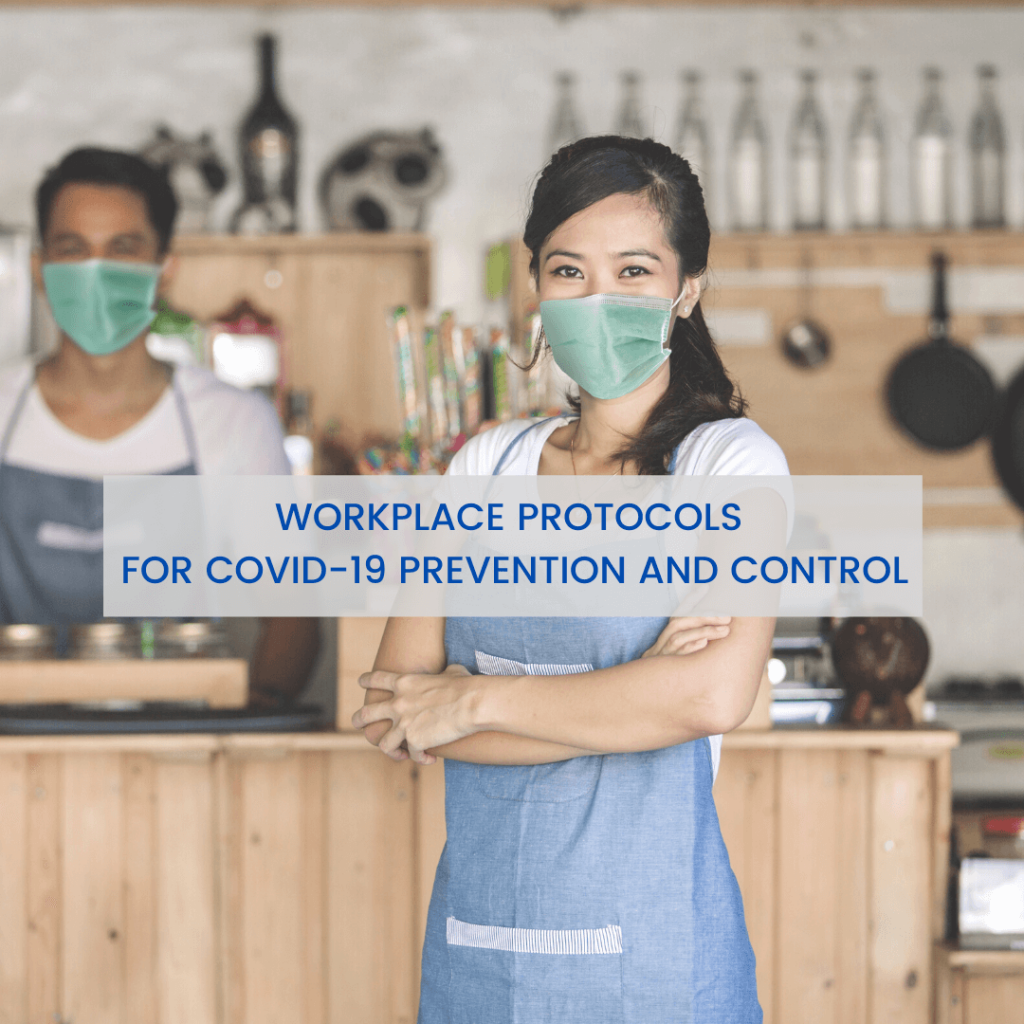
Published 8 May 2020, The Daily Tribune
We have been getting quite a number of queries on workplace protocols in view of the anticipation for the resumption of work in some offices and establishments during the enhanced community quarantine (ECQ) and general community quarantine (GCQ) period. I have covered this topic in previous column but I thought amplification is needed in view of these queries.
The “DTI (Department of Trade and Industry) and DOLE (Department of Labor and Employment) Interim Guidelines on Workplace Prevention and Control of COVID-19” (Interim Guidelines), issued on 30 April 2020 covers all workplaces, employers and workers in the private sector.
The Interim Guidelines aim to assist private institutions allowed to operate during ECQ and GCQ in developing the minimum health protocols and standards in light of the COVID-19 pandemic.
All employers and workers, even before they enter the building or workplace, shall wear face masks at all times and remove the same only when eating or drinking. Appropriate face masks are to be provided by the employers to the workers. They are required to accomplish daily the Health Symptoms Questionnaire (HSQ) and submit to the guard or designated safety officer prior to entry. Their temperature should be checked and recorded in the said questionnaire.
If a worker has a temperature greater than 37.50C, even after a five minute rest, or if his/her response in the HSQ needs further evaluation by the clinic staff, he/she shall be held in a designated isolation area in the workplace, and shall not be allowed to enter the premises. This isolation area should be well ventilated and disinfected frequently, and manned by the clinic staff who shall be given appropriate medical grade personal protective equipment (PPE).
Inside the workplace, certain protocols include the regular cleaning and disinfection of frequently handled objects at least once every two hours, washing of hands with clean water and soap, and compliance with physical distancing measure of at least one meter radius space (side, back and front) between workers. Eating in communal areas is discouraged.
To minimize contact rate, prolonged face-to-face interaction between workers and with clients should be avoided, and video conferencing shall be utilized for lengthy discussions among workers. Elevator use should consider the one-meter physical distancing, thereby encouraging the use of stairs.
What are the duties of employers and workers?
Employers shall:
1. Provide the necessary company policies for the prevention and control of COVID-19 in consultation with workers;
2. Provide resources and materials needed to keep the workers healthy and the workplace safe;
3. Designate the safety officer to monitor COVID-19 prevention and control measures;
4. Enhance health insurance provision of workers;
5. Where feasible, provide shuttle services and/or decent accommodation on near-site location to lessen travel and people movement;
6. Enjoin the hiring from the local community; and
7. Put up a COVID-19 Hotline and Call Center for employees to report if symptomatic, and daily monitoring scheme of “suspect” employee condition.
On the other hand, workers shall:
a. Comply with all workplace measures in place for the prevention and control of COVID-19, such as frequent hand washing, wearing of masks, observe physical distancing, etc.;
b. Observe proper respiratory etiquette;
c. Coughing and sneezing into tissue or into shirt sleeve if tissue is not available;
d. Disposing used tissues properly; and
e. Disinfecting hands immediately through proper washing with soap and water or alcohol-based sanitizer immediately after a cough or sneeze.
In workplaces with imminent danger situations, employers shall comply with Department of Health (DoH) Department Memorandum 2020-0178 (Interim Guidelines on Health Care Provider Networks during the COVID-19 Pandemic). Workers in these workplaces are required to take extra precautionary measures, including strict hygiene and the use of PPE to be worn by workers while at work and disposed of accordingly after use.
What should be done if a worker is suspected as having COVID-19?
The worker shall immediately proceed to the designated isolation area. He/she must never remove his/her mask. The attending clinic personnel should wear PPE, and if needed, require the transport of the affected worker to the nearest hospital.
The workplace must be decontaminated with appropriate disinfectant (e.g. chlorine bleaching solution and 1:100 phenol-based disinfectant). After decontamination, work can resume after 24 hours. Workers present in the work area with suspect COVID-19 worker shall undergo 14-day home quarantine. If suspect COVID-19 worker has negative result, co-worker may be allowed to report back to work.
Are employers required to test workers for COVID-19?
Employers may test workers for COVID-19, subject to DOH protocols for testing of workers and interpretation of results. The testing kits used and procured shall be the employer’s responsibility.
Employers and the workers shall formulate and agree on company policy on COVID-19 testing in conformity to DOH protocols.
For “most at risk” workers and vulnerable groups, employers are highly encouraged to adopt work from home arrangement. Most at risk workers are those who are 60 years of age or above, or of any age with co-morbidities or pre-existing illness like hypertension, diabetes, cancer or with immunocompromised health status, or with high risk pregnancy. In this case, work agreements should be developed to detail the deliverables from these employees. Note that there shall be no diminution in wages or benefits.
In addition, employers are required to provide the DOLE through its Regional Offices, copy furnished the DOH, monthly reporting of illness, diseases and injuries, utilizing the DOLE Work Accident/Illness Report Form.
Everyone should bear in mind that the efficacy of the foregoing COVID-19 protocols inside the work place heavily depends on the collective effort and commitment of employers and their employees to prevent the spread of the virus.
For comments and questions, please send an email to cabdo@divinalaw.com.

